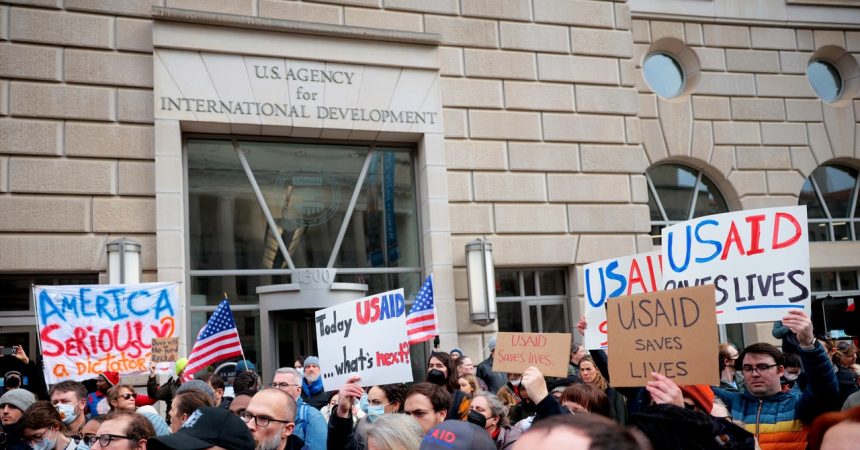The United States Agency for International Development (USAID) is facing significant disruption amidst a potential reorganization and integration into the State Department, raising concerns about the future of its global aid programs, particularly those focused on HIV/AIDS. An internal email circulated among USAID staff indicated an impending reorganization aimed at aligning the agency with the “America First” agenda and ensuring efficient allocation of resources. This announcement coincided with reports of critical medical supplies, including antiretroviral drugs and preventative measures for HIV/AIDS, being stalled in transit to several countries, including Zambia, Nigeria, Haiti, and Mozambique. This disruption is directly attributed to the administrative leave status of USAID logistics personnel, leaving essential aid in limbo and jeopardizing the health and well-being of vulnerable populations.
The blockage of essential HIV/AIDS medication and preventative resources is causing immediate and potentially devastating consequences in the affected countries. In Haiti, for example, aid workers confirmed the inaccessibility of USAID-provided HIV/AIDS medication, emphasizing the complete standstill of operations. This inability to access life-saving treatment poses a grave threat to individuals living with HIV/AIDS, particularly newborns who rely on immediate antiretroviral therapy following a positive diagnosis. The lack of communication from USAID further exacerbates the situation, with aid workers reporting unanswered calls and a growing sense of uncertainty. This operational paralysis has been met with sharp criticism from international health advocates, who accuse the Trump administration of jeopardizing the lives of millions by disrupting crucial aid programs.
Beyond the well-known President’s Emergency Plan for AIDS Relief (PEPFAR), USAID supports numerous other HIV/AIDS-related initiatives. These programs, including research on prophylactic devices for women in sub-Saharan Africa, are also experiencing significant disruption. Researchers have reported abrupt termination of email access, hindering their ability to apply for humanitarian waivers and communicate with IT support. This disruption underscores the widespread impact of the ongoing reorganization and raises concerns about the continuity of critical research and aid efforts. The sudden changes at USAID have prompted strong reactions from both within the agency and from members of Congress.
USAID employees and Democratic lawmakers staged a protest outside the agency’s headquarters in Washington, D.C., denouncing the reorganization and the potential consequences for global aid programs. Representative Jamie Raskin criticized the move as an “illegal, unconstitutional interference with congressional power” that endangers lives worldwide. The protest reflects the growing anxiety and frustration among USAID staff regarding the uncertainty surrounding their jobs and the future of the agency’s mission. The closure of USAID offices in Washington, D.C., further contributes to the sense of disruption and uncertainty. An email to employees confirmed the continued closure, adding to the apprehension regarding the agency’s operational status and the potential long-term implications of the reorganization.
The disruption at USAID extends beyond the immediate impact on HIV/AIDS programs, raising broader concerns about the future of U.S. foreign assistance and its role in addressing global health challenges. The agency’s potential integration into the State Department, coupled with the emphasis on an “America First” agenda, suggests a potential shift in priorities and a potential reduction in the scope of U.S. foreign aid. This shift could have far-reaching consequences for developing countries that rely on USAID’s support for critical health programs, development initiatives, and humanitarian assistance. The uncertainty surrounding the reorganization and its long-term implications underscores the need for transparent communication and a clear articulation of the future direction of U.S. foreign aid.
The ongoing situation at USAID presents a critical juncture for the future of U.S. foreign assistance. The potential reorganization, the disruption of essential aid programs, and the protests from within the agency and Congress highlight the significant challenges and uncertainties facing the agency. The need for clarity, transparent communication, and a renewed commitment to global health and development is paramount to ensuring the continued effectiveness of U.S. foreign aid and its vital role in addressing critical global challenges. The disruption of essential HIV/AIDS programs serves as a stark reminder of the potential human cost of these changes and underscores the urgency of addressing the ongoing situation at USAID.



